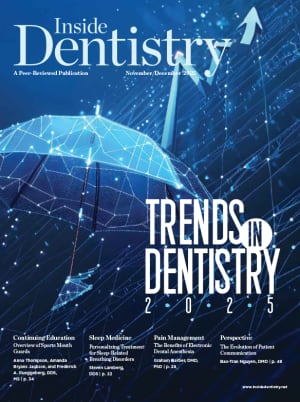NEWBERG, Ore., Jan. 21, 2014 – A-dec is proud to announce its 50th year as a dental equipment manufacturer. Founded in 1964, A-dec celebrates a half-century of “quality through caring” with gratitude for customers and dealers, suppliers, and the community at-large.
A-dec was founded by husband and wife team Ken and Joan Austin. In their honor, the anniversary will conclude in February 2015, which commemorates when the young Austin couple drafted their first paychecks as employees.
Today, A-dec’s 50-acre Newberg headquarters is home to more than 1,000 employees who manufacture and market equipment to dental professionals worldwide. A-dec also has facilities in the United Kingdom, Australia, and China, which support an extensive network of authorized dealers in more than 100 countries worldwide.
“Although the world has changed over the last five decades, our values have never wavered,” says A-dec President & CEO Scott Parrish. “Quality through caring impacts how we think as a company and also serves as a cornerstone in our pursuit to make the best better.”
Parrish also explains that the company views the anniversary as an opportunity for employees to inspire one another, and to ensure its reputation for quality continues to flourish.
The company pioneered many of the innovations used in dental treatment rooms today, which include the evolution of patient chairs, delivery systems, and dental lights. For clinical handpieces, A-dec partners with global leaders such as Austria-based W&H.
Ken and the late Joan Austin were responsible for producing and patenting dentistry’s first vacuum saliva ejector, which served an important role in the advent of sit-down dentistry. The 1964 innovation would replace the era’s cumbersome belt-drive devices.
A-dec also introduced the first compact delivery system, revolutionizing how doctors are able to treat patients more efficiently and ergonomically.
“A-dec began with a simple idea,” says co-founder Ken Austin, who continues to be involved with portable equipment designed for mobilizing treatment to under-served populations. “Our approach then and today is to create a better solution that’s simple and easy to use, and to treat every customer as if he or she were our last.”
The company’s successful rise has been steady. Although A-dec started from inside the Austins’ Broomfield, Colo., home in 1964, the family soon returned to its hometown Newberg a year later. By 1971, A-dec employed 53 people.
“If there’s a piece of dental equipment that has transformed the treatment room experience, there’s a very good chance it started with A-dec,” says Parrish. “We’re competitive because we put the dental team first. It’s a legacy rooted in integrity, which is a cornerstone in moving us forward.”
By 1977, A-dec was offering a full line of instrument delivery systems and soon added chairs, stools and dental lights. A-dec introduced its modular treatment room cabinetry—Preference Collection—in 1983.
The creation of a self-contained water system was also an A-dec innovation. The concept improved infection control in the way it contained and controlled the water flowing to handpieces and syringes.
In 2004, A-dec introduced the A-dec 500 with its chair-mounted delivery arm, which established a new treatment-room paradigm for integrated technologies. Five years later, the company introduced the A-dec 300 with its slim profile and lower price point. In 2010, A-dec introduced A-dec 200 in response to overseas markets, which wanted a simple streamlined offering.
The award-winning A-dec LED dental light was introduced in 2012 and A-dec 400 was introduced last year.
A-dec has enjoyed success in other ways, too. Aside from delivering market-ready products, A-dec and the Austin family are widely recognized for their generosity and philanthropy toward youth, education, arts, and the dental industry. Contributions by the company reflect a principled commitment to take care of people.
“Quality through caring” has helped guide efforts which include an equipment donation program, employer-sanctioned support to benefit American Red Cross and United Way, and the TotaChair partnership with Rota-Dent—a not-for-profit endeavor that helps get specially designed portable equipment to underserved populations around the world.
